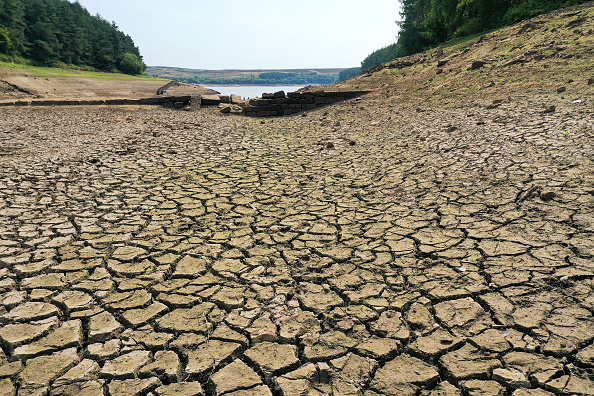It’s hot, sure but we don’t need the health bureaucrats to tell us to open the windows

Phew, What A Scorcha! No, not a tabloid headline from this week, but from 1976. As many have pointed out already, in that distant summer Britain experienced a prolonged heatwave. The temperature was over 30 degrees for several weeks, without respite.
We survived without the hysteria of the Met Office or the pronouncements of the UK Health Security Agency (UKHSA). UKHSA was set up under Boris Johnson, as a throwaway attempt to consolidate the sprawling bureaucratic machine of Public Health England. It is an indictment of the whole period of Johnson’s tenure as Prime Minister.
Minister swore to abolish PHE after it attracted opprobrium from politicians and the public alike for its conspicuous incompetence. But the bureaucracy which reappeared was exactly the same, under a new name.
Meanwhile, Johnson clapped together his hands considering it a job well done.
The head of UKHSA, Jenny Harries, held a high level post in PHE until becoming Deputy Chief Medical Officer. She appeared at the Prime Ministerial Covid press conferences in the early stages of the pandemic, being responsible for such gems as the statement that the UK had “a perfectly adequate supply of PPE”.
This time round, UKHSA has used its time well to issue “heat health advice”. The stuff, which, yesterday morning, Transport Secretary Grant Shapps said was simply “common sense”.
We were told to try and keep out of the sun between 11am and 3pm. And perhaps this advice is necessary. After all, Noel Coward did have a mega-hit with his 1930s song “Mad dogs and Englishmen go out in the midday sun”.
We were also given the sage wisdom to “avoid physical exertion in the hottest parts of the day”. A somewhat unnecessary addition to the 11am rule.
Human societies have always fostered, whether for good or ill, shared beliefs on what is a sensible course of action in any given context. This often extends to morality, to shared concepts of what is right or wrong amongst all members of a society.
The Ancient Egyptians knew how to cool down, by hanging wet reeds over their windows to keep the air cool. But instead, we seem to need bureaucrats to tell us what was obvious centuries ago.
Increasingly, there is hardly any aspect of human activity which is deemed to be valid unless it has been sanctioned by rules laid down by experts. There is of course valuable information in, for example, a weather forecast warning people of very high temperatures. Short-term forecasting has been demonstrably improved over time.
By and large, incredible though it may seem, people are able to process such information, judge its reliability and adjust their behaviour appropriately all by themselves.
Approaches which allow individuals to exercise choice and judgment have proved over the ages to be pretty good ways of discovering what works. A key reason for this is that they allow trial and error, the application of individual experience and, most importantly, feedback.
It is this principle which needs to be restored across the whole area of public policy. In a heatwave, we do not need highly paid experts in UKHSA and the Met Office to instruct us how to behave. “Phew, What a Scorcha” is all we need to know.
